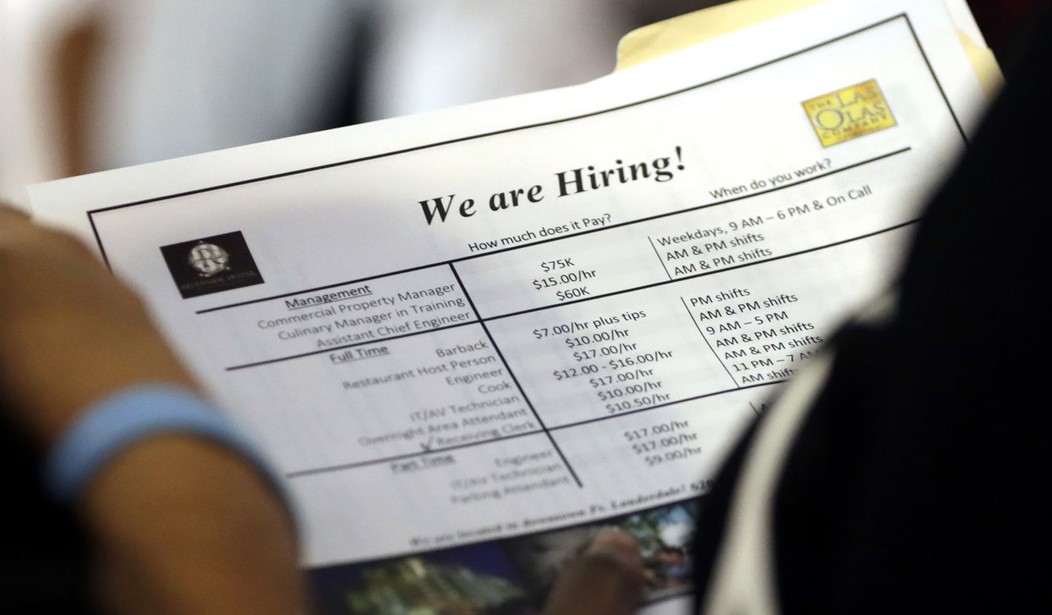Today in our continuing Incentives Matter lesson series, now comes the business community of St. Cloud, Minnesota. The smaller-urban center has seen economic activity rebound, at least in potential, since the state relaxed some pandemic-related restrictions and stimulus/relief money makes its way into the system. They even generated over 1300 new jobs — but fewer than 20% of that number of people entered the workforce.
Business owners know full well why workers aren’t responding, and it’s not just the money:
Respondents of an informal survey of central Minnesota businesses cited expanded unemployment benefits as a detriment to hiring, which is causing companies to lose clients as they decrease output and forgo expansion plans.
The survey, released Wednesday by the Greater St. Cloud Development Corp. (GSDC), was completed by 215 people from businesses in St. Cloud, Cold Spring, Sartell, St. Joseph, Sauk Rapids and Waite Park.
More than half the respondents had up to seven open positions and a quarter had 14 or more openings — with the hardest-to-fill jobs being positions that make between $15 and $25 an hour.
Conventional wisdom holds that when a company is struggling to find labor, it can solve the problem by increasing wages or offering better benefits.
But that’s not what local companies have found, according to GSDC President Patti Gartland. About 40% of respondents said less than half of the applicants contacted for interviews this year followed through with them and less than half the applicants who were offered jobs actually accepted them.
It’s not just a mismatch between pandemic-boosted benefits and the wage offered. Many if not most of these jobs would pay better than the benefits level, these business owners say, but would also require in-person work. Some workers getting paid not to work would be thrilled to get a real job, of course, but many of them apparently prefer taking slightly less money and not working at all.
That creates limits for business rebounds, as these owners are discovering. A lack of staff reduces the capacity to produce, which means that they have to turn potential customers away. I have seen evidence of this in the Twin Cities as well; a popular restaurant in the suburbs announced that they had to reduce their hours in order to meet their own service standards, thanks to a lack of staff. That means fewer sales, lower returns on investment, and a reduction in tax revenue at all levels. One might think that government officials might have some concerns over the latter.
The business owners in St. Cloud want Minnesota’s government to follow the example of some red states in closing out the pandemic unemployment benefits now, rather than in September. Some of their businesses may not survive otherwise:
“Our local business can’t afford to simply wait out this crisis until expanded federal unemployment benefits end on Sept. 6,” Bohnen stated in a release on the survey results. “We need the state to take the steps under its control to make a positive difference.”
The media reported widely on today’s initial weekly jobless claims report, the level of which dropped to a new pandemic low of 406,000. That’s not too far off from pre-pandemic normal levels in the 250-350K range. However, the same report also shows over twelve million continuing claims for expanded benefits (plus 3.6 million drawing regular claims, likely overlapping), while the nation has more than seven million job openings that aren’t getting filled. The expanded benefits are distorting the labor market — and because it’s a temporary and unnecessary distortion, it’s doing damage now and will do more damage in the short term when the distortion ends. It’s time to end these programs and set the incentives for full engagement.









Join the conversation as a VIP Member